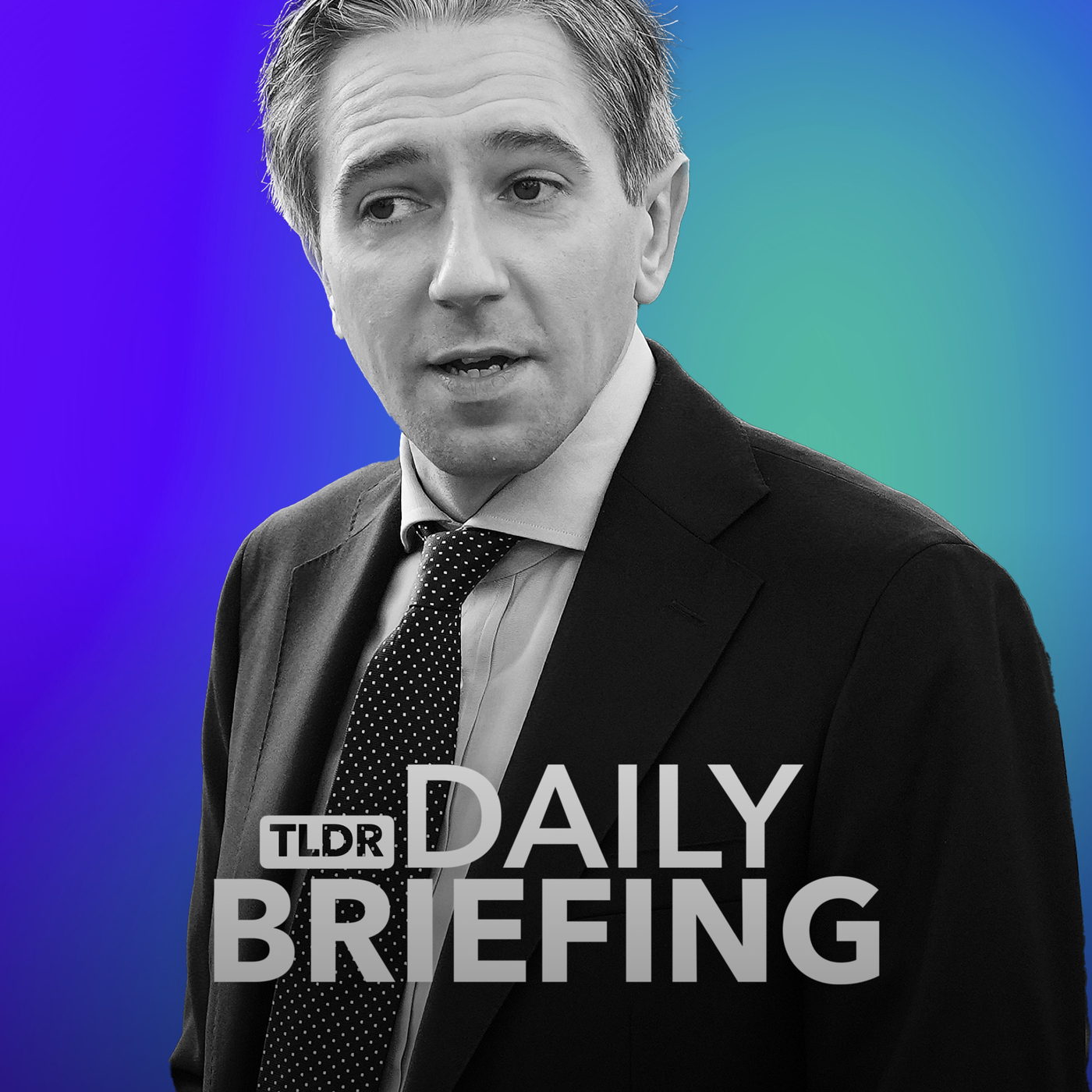
Deep Dive
- Three-way race between Fine Gael, Fine Foil, and Sinn Féin
- Tax and spend was the main election issue
- Concerns about a second Trump presidency and its impact on the Irish economy
Shownotes Transcript
This video is brought to you by Brilliant. Today, Ireland votes in the 2024 general election. Ceasefire violations between Hezbollah and Israel emerge and Putin threatens to hit Kyiv with intermediate-range missiles. From TLDR News, this is your daily briefing for Friday 29th November 2024. In today's main story, Ireland holds its 2024 general election, with polls predicting a tight three-way race.
According to the latest poll from the Irish polling indicator on November 27th, the Liberal-Conservative Fine Gael Party, centre-right Republican Party Fine Foil and the left-wing Republican Party Sinn Féin are all polling at around 20%. However, with polling stations still open until 10pm tonight, we've still got a while until the official results are in. The top issue in the three-week election campaign was tax and spend.
This comes off the back of a massive €30bn corporation tax haul and an expected €24.5bn budget surplus this year, which has given Ireland a once-in-a-generation chance for public investment. All parties have therefore outlined multi-billion euro spending programmes and tax cuts in their campaigns. So in economic policy terms, there's little to distinguish them from one another.
What it comes down to will, therefore, be which party is deemed most trustworthy with handling the public finances. What complicates things here is a wariness about what a second Donald Trump presidency could mean for the Irish economy. That's because some analysts say Trump could seek to claw back revenue from US multinationals with a tax base in Ireland.
which would reduce the money going into the Irish Exchequer. For context, many US multinationals make use of Ireland's low rate of corporation tax, which was lifted from 12.5% for large companies to 15% from this year. They often do this by patenting and selling their products in the US, but locating their intellectual property rights, production and profits in Ireland.
According to the Irish Fiscal Advisory Council, three US firms, believed to be Microsoft, Apple and Pfizer, account for some 43% of all corporation tax receipts in Ireland. And a third of the $350 billion profits booked by US firms in low-tax jurisdictions are believed to come from Ireland.
So, if Trump tries to reclaim this tax base, the US could generate tens of billions of dollars a year in new tax revenue, which the Irish Exchequer would lose. This, therefore, explains why many voters will be thinking to elect a government that will protect Ireland's finances, and the final results will probably reflect which party is most trusted on the economy. We'll bring you an update on Monday once the results are in, so make sure you're subscribed for that.
There's more on the way, but remember to subscribe and ring the bell for more Daily Briefing on Monday. Plus, if you want to support the channel like John Kent, then consider joining the TLDR daily membership program for just £1.99. The Israeli military conducted airstrikes on a Hezbollah facility storing mid-range rockets in southern Lebanon on Thursday, marking a significant breach of a ceasefire that had just taken effect.
This marked Israel's first airstrike since the truce was brokered by the US and France to halt over a year of fighting. Israel has accused Hezbollah of breaching the ceasefire by allegedly sending vehicles to suspicious areas, resulting in its forces firing at what they deemed suspects. Hezbollah lawmaker Hassan Fadlala condemned these actions, asserting that Israel is attacking civilians returning to border villages.
The fragile agreement, which was put into force on Wednesday morning, local time, aims for a 60-day cessation of hostilities, but seems to be facing increased challenges as both sides exchange violation accusations.
The Lebanese army reported multiple ceasefire violations by Israeli forces on Wednesday and Thursday. Amid these tensions, Israeli Prime Minister Benjamin Netanyahu emphasised that the military is on alert for any violations and has warned of an intense response from Israel if the ceasefire crumbles. Meanwhile, residents displaced near the border expressed their anxieties as Israeli troops remain stationed in the region, complicating their attempts to return home.
Over to the UK now, where MPs are today voting on a landmark assisted dying bill, which could result in one of the most significant reforms to the country's legal system in a century. The controversial bill, which aims to allow terminally ill individuals with six months or less to live to choose assisted dying, has sparked heated debate and division across party lines.
The latest polling shows a tight race with 265 MPs publicly supporting the bill compared to 217 against, leaving over 140 undecided. Prominent political figures including ex-Prime Ministers Gordon Brown and Theresa May oppose the bill, while former Prime Minister David Cameron has reversed his stance to support it.
Concerns have been raised about safeguards in the bill aimed at preventing coercion. Critics argue that the state of palliative care in the UK may push vulnerable individuals towards choosing assisted dying. The bill has also caused a political rift within the cabinet. Health Secretary Wes Streeting was one of the first to withdraw support, followed by other cabinet ministers. Seven cabinet ministers have so far said that they do support the bill.
As the vote heats up, Labour leader and UK Prime Minister, Zakir Starmer, has refused to disclose his voting intentions, saying he did not want to put pressure on other MPs. Russian President Vladimir Putin escalated tension with Ukraine on Thursday, threatening possible strikes on the Ukrainian capital, Kyiv, using his newly unveiled Ereshnik missiles.
Speaking at a press conference in Kazakhstan, he stated: "We do not exclude the use of Oreshnik against military facilities or decision-making centres in Kyiv." The Oreshnik missile, which was first launched against Ukraine last week, can achieve speeds of up to 10 times that of the speed of sound and carry six warheads. Putin claimed the missile's capabilities allow it to bypass modern air defence systems entirely.
He further asserted that a single strike involving multiple Oreshnik missiles could yield devastation comparable to that of a nuclear weapon. Putin described Oreshnik as capable of penetrating underground bunkers and releasing submunitions that turn everything to dust, although he noted that the missile is not classified as a mass destruction weapon.
He suggested that the US decision to allow Ukraine to strike Russia with longer-range missiles might be intended to make it harder for the next US administration to negotiate a peace deal. Putin also praised US President-elect Donald Trump as "clever and experienced", suggesting that Trump's leadership could facilitate a resolution to the ongoing conflict. Trump has previously asserted he could end the Ukraine war in one day.
Finally, happy Thanksgiving to all who celebrate. Our final story is a nice Thanksgiving tale about an Alaskan pilot called Esther Sandelin, who has been airdropping frozen turkeys from her plane to people who live in remote areas for the past three years. Sandelin came up with the idea after hearing one of her neighbours talk about how they would split squirrel meat for three days of Thanksgiving dinner, as traversing the frozen terrain without a road system can make it tough to get hold of a turkey.
She then remembered someone from her childhood who had airdropped turkeys to families in the area and decided she would start doing the same. This year, she's dropping between 30 and 40 turkey bombs from the sky to ensure her neighbours can have a good meal. Sandalyn's ultimate aim is to turn her personal mission into a non-profit organisation. She said, my vision with this is to reach further parts of Alaska because there are so many families that live off the grid.
Now, as you've hopefully realised after watching an 8 minute video explaining everything from the Irish general election to Putin's threats towards Kyiv, here at TLDR we're committed to helping you learn. Fortunately, the sponsor of today's video shares this commitment and is one of the best websites on the internet to help you learn new skills from the ground up. That website is, you guessed it, brilliant.
Now, one of the best things about Brilliant is rather than simply throwing information at you and testing you on it, Brilliant teaches you by doing. Each of their lessons is filled with hands-on activities in problem solving that helps you actually play with the concepts.
This is proven to be six times more effective than simply watching lecture videos. And what's more, Brilliant actually helps you do all of this learning wherever you are. You can complete their lessons on your phone, so you can easily utilize any spare minutes you have in the day with actually worthwhile learning.
You can try everything Brilliant has to offer for free for a full 30 days. So click on the link in the description. That way you'll also get 20% off an annual premium subscription. Thanks for watching the video and thanks to Brilliant for supporting this video.
